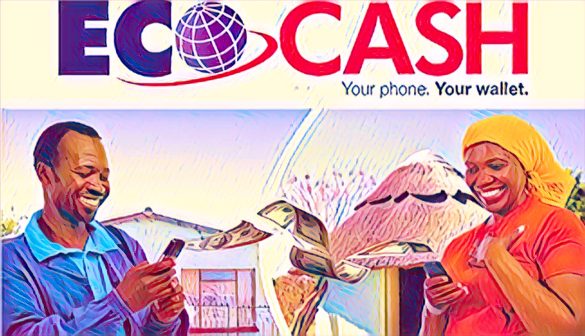KEY POINTS
-
EcoCash now enables outbound transfers to 12+ countries via bank accounts or mobile wallets, slashing costs for diaspora-driven payments like education and healthcare.
-
Zimbabwe’s 4 million diaspora members drive a $1.7 billion outbound remittance market, fueled by education, medical, and trade needs.
-
While offering competitive fees, the service operates under a $500 monthly transfer cap to align with Zimbabwe’s forex conservation policies.
In a landmark move for Southern Africa’s financial sector, EcoCash, Zimbabwe’s dominant mobile money platform, has launched an international remittance service, enabling users to send funds directly to over a dozen countries.
The service, announced Wednesday, marks a strategic pivot for the fintech giant, which previously focused only on receiving diaspora remittances.
Herald online reports that its 12 million users can transfer money to nations including South Africa, Zambia, Kenya, China (via Alipay), and the Democratic Republic of Congo (DRC), with plans to expand to Europe and Asia later this year.
The platform allows transactions directly to bank accounts or mobile wallets, such as Kenya’s M-Pesa, bypassing traditional cash-based agents. “This isn’t just about sending money—it’s about dismantling barriers for families and businesses,” said EcoCash in a statement. The service targets Zimbabwe’s vast diaspora, estimated at 4 million people, who previously relied on costly informal channels to support relatives back home. With fees up to 50% lower than global operators like Western Union, EcoCash aims to capitalize on the $1.7 billion in annual outbound transfers for education, healthcare, and trade.
How zimbabwe’s diaspora is redefining remittance economics
Zimbabwe’s diaspora, long a critical source of foreign currency, now increasingly requires mechanisms to send money out of the country. Over 15,000 Zimbabwean students study abroad, primarily in South Africa and China, while cross-border trade with neighbors accounts for 30% of GDP. “My daughter in Johannesburg used to carry cash across the border for her tuition. Now, I can pay her university directly via EcoCash,” said Tariro Moyo, a Harare-based vendor.
The service also addresses rising medical tourism, with 60,000 Zimbabweans seeking healthcare abroad annually. Meanwhile, small businesses importing goods from China or South Africa can now settle invoices digitally. “This closes a $300 million gap in formal trade financing,” noted Tendai Banda, an economist at the University of Zimbabwe.
EcoCash’s pivot comes amid stiff competition from telcos like MTN’s MoMo and Nedbank’s Mukuru. However, its integration with Alipay—China’s largest digital wallet—gives it an edge in servicing the 20,000 Zimbabwean students in Beijing and Guangzhou. Regulatory hurdles remain: Zimbabwe’s central bank mandates a $500 monthly cap on individual transfers to curb forex shortages, a limit EcoCash calls “a necessary trade-off for sustainability.”


